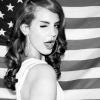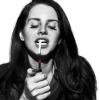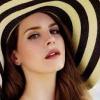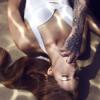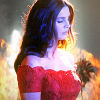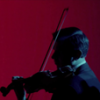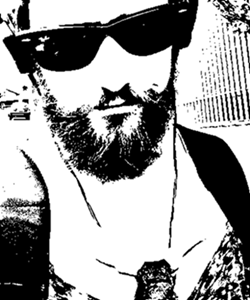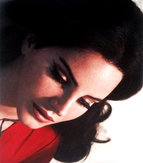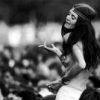-
Content Count
121 -
Joined
-
Last visited
Reputation Activity
-
cinnamon liked a post in a topic by sjrq in Lana Del Rey Defends Herself Against 'The Guardian' Controversy
I think what Lana meant was she would rather be dead than doing long interviews with someone asking her personal questions.
-
Paradise Princess liked a post in a topic by sjrq in Lana Del Rey Defends Herself Against 'The Guardian' Controversy
I think what Lana meant was she would rather be dead than doing long interviews with someone asking her personal questions.
-
Lanasflowercrown liked a post in a topic by sjrq in Lana Del Rey Defends Herself Against 'The Guardian' Controversy
I think what Lana meant was she would rather be dead than doing long interviews with someone asking her personal questions.
-
FirstSpider liked a post in a topic by sjrq in Lana Del Rey Defends Herself Against 'The Guardian' Controversy
I think what Lana meant was she would rather be dead than doing long interviews with someone asking her personal questions.
-
sjrq liked a post in a topic by primadonna_teen in Lana Del Rey Defends Herself Against 'The Guardian' Controversy
It's a fault on both sides:
What Lana said was very much exaggerated to make her look suicidal.
However, that we can't dismiss the fact Lana did say she wished she was dead. But as others have said, people say "kill me now" and no one questions if they're suicidal.
But in general, people just need to give Lana a break. I don't know why there is such a fascination with giving Lana especially a hard time, but there really is no reason as to why she should be picked on. And I think that's what she's sick of. To be honest, I would be too. That's probably why she hasn't wanted to be interviewed recently.
All in all this is what I think she's trying to say: Let the music speak for itself. Lana is here to make music and pursue her dream; Her personal life is another story. The fact that this interview exploited and was exaggerated is something she's been trying to get away from for so long, and I think that's why seeing this interview was so hard for her.
-
LittleFool liked a post in a topic by sjrq in Ultraviolence Reviews: 74 Metascore (DISCUSS REVIEWS ONLY)
What a great line from Lindsay Zoladz:
"Ultraviolence has an air of "HI HATERS" drizzled out in gasoline, and an immaculately-manicured finger flicking a cigarette in slow-motion onto the ground."
-
ruined peaches liked a post in a topic by sjrq in Lana Del Rey Defends Herself Against 'The Guardian' Controversy
I think what Lana meant was she would rather be dead than doing long interviews with someone asking her personal questions.
-
lazybooklet liked a post in a topic by sjrq in Lana Del Rey Defends Herself Against 'The Guardian' Controversy
I think what Lana meant was she would rather be dead than doing long interviews with someone asking her personal questions.
-
Agnese13 liked a post in a topic by sjrq in Lana Del Rey Defends Herself Against 'The Guardian' Controversy
I think what Lana meant was she would rather be dead than doing long interviews with someone asking her personal questions.
-
whitman liked a post in a topic by sjrq in Lana Del Rey Defends Herself Against 'The Guardian' Controversy
I think what Lana meant was she would rather be dead than doing long interviews with someone asking her personal questions.
-
summertimesadness_x liked a post in a topic by sjrq in Lana Del Rey Defends Herself Against 'The Guardian' Controversy
I think what Lana meant was she would rather be dead than doing long interviews with someone asking her personal questions.
-
viagra liked a post in a topic by sjrq in Ultraviolence Reviews: 74 Metascore (DISCUSS REVIEWS ONLY)
What a great line from Lindsay Zoladz:
"Ultraviolence has an air of "HI HATERS" drizzled out in gasoline, and an immaculately-manicured finger flicking a cigarette in slow-motion onto the ground."
-
sjrq liked a post in a topic by mermaid12 in Ultraviolence Reviews: 74 Metascore (DISCUSS REVIEWS ONLY)
Loved that Thanks for posting
Found two more reviews that are excellent. I know they don't count for MC, but they make me so proud for Lana Lana is the bravest artist out there and these two reviewers actually get it.
http://www.nzherald.co.nz/entertainment/news/article.cfm?c_id=1501119&objectid=11276556
http://tinabobeena.buzznet.com/user/journal/18073390/5-reasons-love-lana-del/
-
sjrq liked a post in a topic by slang in Ultraviolence Reviews: 74 Metascore (DISCUSS REVIEWS ONLY)
I didn't get much of a sense of what the music was like from the review. There is one paragraph about it ("languid desert rock") and then the rest seems to be about artist attitude. The sense I got was the music might have been great but the artist's attitude spoiled it (the last line in the review actually), so the 6 in 6/10 tells me more about the reviewer's sense of the importance of attitude than the quality of the artist's work. Waiting to see who (if anyone) will review/talk about UV at http://music.thetalkhouse.com/ -
Lanakai liked a post in a topic by sjrq in Rolling Stone reveals collaboration between Lana Del Rey and Brian Wilson
I suppose one could say "Driving In Cars With Boys" - the version with the high chorus - is a "Beach Girls" kind of song.
-
sjrq liked a post in a topic by DeadAgainst in Ultraviolence - Post-Release Discussion Thread + Poll
Down on the West Egg they got a sayin' http://thegreatjaygatsby.blogspot.com/2010/06/old-money-v-new-money.html
Definitely sounds like it was written for the film
-
sjrq liked a post in a topic by Manueldelrey in Ultraviolence Reviews: 74 Metascore (DISCUSS REVIEWS ONLY)
The thing i don't get is the bad reviewing of the lyrics, i think they are pretty cool....
-
sjrq liked a post in a topic by lafleursauvage in New interview: Radio.com with Lana Del Rey
Original source here
Talking to Lana Del Rey about her music is like trying to grab smoke with your hands.
Her contemplative nature makes her muse on tangents, from Elon Musk to the Jesuits to the Laural Canyon sound of the ’70s when trying to put the meaning and inspiration behind her songs into words. All the while, she remains open and honest.
During a sit-down interview in a quiet studio at KROQ in Los Angeles (a Radio.com station) Del Rey’s demeanor in person was disarmingly relaxed and quite charming. Some critics have been quick to dismiss her as an inauthentic fabrication, but as she talked about her new album Ultraviolence (due out June 17), she came across as someone in complete control of her music and rapidly accelerating career.
~
How did the album come to be calledUltraviolence?
I think the album was called Ultraviolence before I even had the songs. That’s because I just really love words. I’m kind of inspired by just a one-word title. For this one, I had a motif of hydrangeas in mind. Mainly because these flowers I love are in shades of blue and violet, and when I was talking to [producer] Dan [Auerbach of the Black Keys] about inspirations and color tones, this sort of high violet vibration was on my mind. Maybe because blue is connected with jazz and also sorrow.
What inspired the album’s first single, “West Coast”? It definitely expands the dimensions of your sound.
“West Coast” as a demo sounded really different, and I never felt like it got where it was supposed to be until I met Dan Auerbach. I was telling him that I was really interested in…that my heart was in jazz, and my mind and my roots were in jazz and that I wanted to make a record that was sort of this mix of beautiful jazz undertones and a West Coast fusion, kind of inspired by the Eagles and the Beach Boys and this sort of Laurel Canyon revival thing that was happening in the ’70s. So I went to Nashville and he reproduced “West Coast” and yeah, I don’t know…I loved it.
Dan said that everything on the record, all the songs have this kind of narco-swing. So whereas the beat and the verses on “West Coast” were really direct, the chorus naturally slipped into this half-time beat. I just remember everyone at the label being like, ‘God, it’s getting slower at the chorus?’ And we were like, yeah!
On your most recent U.S. tour, one of the highlight of the shows was when you would go out into the audience to meet people, sign autographs, take selfies and accept gifts. What inspired you to have such intimate moments with your fans during concerts?
I mean, it’s definitely different than what I ever expected a tour would be, if I even was lucky enough to tour, you know, in my head when I was imagining what I’d maybe be able to do. I was a shy performer for years. I never really dipped into that well of excitement that the audience brought, not until I went to Europe last year for my four-month tour. I think when things are more difficult personally, you find yourself genuinely turning to the audience for support. It’s not something that I thought I’d ever do, so yeah, it is overwhelming and it’s touching. People bringing letters and they really want to talk. Because I always feel that my energy level stays the same during shows, it’s kind of at this mid-level, but everyone in the audience is at this manic high-level. For me, the show is always about them. I find myself just getting lost watching them, because they’re so animated.
When you return to the stage, you’re usually just laden with gifts from the fans. What’s the most memorable gift you’ve been given by a fan during a show?
A boy brought me a silver jewelry box, and etched in it was this T.S. Eliot poem that had been my header on Twitter. It was just this comment about a rose that had the look of a flower that was always looked at. So he knew that that was one of my favorite quotes, and I found that to be so very thoughtful.
In your current cover story with The Fader, you talked about having a keen interest in science and technology.
I majored in metaphysics in college, that’s what I got my degree in. And the reason I chose that was because the Jesuits who were teaching that subject, they weren’t just theologians, they also had backgrounds in science. Obviously the quest for peace, the quest for knowledge of something bigger is…that’s the end game. That’s what I’m really interested in. But technology, I believe, is bringing us closer to maybe figuring out some of those questions, and I think we’ve really seen that in the last ten years. I’m interested just like probably anybody else is. I guess meeting people like Elon Musk and people involved in the tech world in different ways has been interesting to me.
I wanted to ask you about the Ultraviolence song, “F—-d My Way Up to the Top”…
Oh, God.
In an interview with Grazia in Germany, you inferred that it was in part a response to another popular female artist who’d said derogatory things about you in the press.
What do I say… I put so much time in putting a narrative to the track listing together, and then I’m so stupid because I should just know that it’s totally gonna be disregarded because I just set myself up. Let me put it this way, every track that I put on there and every track name and the order that it’s in tells a story that is important to me. In my mind, the narrative for this record ends with the last track, not the bonus deluxe stuff, all that business. It ends with the cover of Nina Simone’s “The Other Woman.” And without even really saying more about that, the decision to end with a cover of a jazz song and the content within that, it’s kind of telling in its own way.
And so is “Having F—–d My Way Up To The Top” being toward the end of the track listing. I would say the track having more of a hip hop heavier beat, whereas the rest of the album is live and organic…it kind of drives this one particular point home. It’s hard when you’re doing something in the studio, you kind of feel like your story about it is going to end there, but then in interviews you’re never really sure how far to elaborate…there’s not much I can really say about it that’s going to help you understand. I’ll just wait for you to listen to it.
In addition to Ultraviolence, you’ve had immediate success this year with your version of “Once Upon a Dream,” from the Disney movie, Maleficent. What are your memories of that recording session?
It was great, because I did that song with my best friend for the last ten years, Dan Heath, who became one of my producers. He and I have such a great thing going. We did it at home actually, at his home studio. We recorded on the same mic we’ve used on a lot of my other songs that we’ve done together. It was exciting, because we love Disney. We love the history of Disney. So, it was really natural and nice to be involved in a project like that.
-
sjrq liked a post in a topic by lanasgirl in Lana Del Rey: The New York Times Interview
Finding Her Future Looking to the Past Lana Del Rey Still Stirs Things Up With ‘Ultraviolence’
The New York Times Interview: Lana Del Rey
LOS ANGELES — In October, before starting an international theater tour, the songwriter Lana Del Rey consulted a clairvoyant. She was instructed to write down four questions in advance and sleep on them. The first question on the list, Ms. Del Rey said in an interview in May at her house here, was “Am I meant for this world?”
It’s probably not the kind of question most multimillion-selling pop singers would ask themselves with their careers clearly ascendant. This year, Ms. Del Rey was called on to sing a spooky remake of “Once Upon a Dream” for the Disney film “Maleficent,” and she sang at Versailles for the pre-wedding party of Kanye West and Kim Kardashian.
But doubt, regrets, obsessive longing and self-destructive impulses are often at the core of Ms. Del Rey’s songs and videos. “I wait for you babe, that’s all I do/You don’t come through babe, you never do,” she sings in “Pretty When You Cry” on her new album “Ultraviolence” (Polydor/Interscope), due for release Tuesday.
Since her emergence on a major label with the single “Video Games” in 2011 and the album “Born to Die” in 2012, Ms. Del Rey has drawn passionately opposed responses. Her songs and video clips demurely step into cultural minefields, exploring eroticism, mortality, power, submission, glamour, faith, pop-culture iconography and the meaning(s) of the American dream. She has faced, in reviews and online discussions, shifting accusations of inauthenticity, amateurishness, anti-feminism and commercial calculation (although her only Top 10 single in the United States was unplanned: a dance remix by Cedric Gervais of her wistful ballad “Summertime Sadness”). But she has also, largely through YouTube, gathered an adoring worldwide audience that takes her every lyric to heart.
“Ultraviolence” will doubtless stir up more disputes. But one thing the album should immediately eliminate is the notion that Ms. Del Rey is only chasing hits. The album reaches deeper into her slow-motion sense of time, her blend of retro sophistication and seemingly guileless candor. It also moves gracefully between heartache and sly humor, sometimes within the same song.
The music on “Ultraviolence” sets her further outside whatever passes for current pop mainstream. While radio playlists are full of futuristic electronic dance beats and Auto-Tuned testimonials to self-esteem, Ms. Del Rey, 28, has taken a contrary path, melodic and melancholy. Much of her music has been lush and downtempo, invoking vintage movie scores and echoes of the 1950s and 1960s; it opens quiet spaces. Her voice sounds human and unguarded, offering sweetness and ache even when she sings four-letter words.
The tracks on “Born to Die” drew on hip-hop, with grunted samples and hefty beats, but now, she said, “I’m not crazy about some of that production.” The hip-hop influence was already receding on “Paradise,” the EP she released in 2012. And “Ultraviolence” is more languorous than ever. Its first single, “West Coast,” actually downshifts to a slower tempo for its chorus, where standard radio formula calls for a big buildup.
In a throwback to a less-computerized era, many of the tracks on “Ultraviolence” were built around Ms. Del Rey and a seven-piece band recording together and responding to one another. The songs often float in a psychedelic haze that she described as “narco-swing.” Dan Auerbach, the Black Keys’ guitarist, produced and performed on the album, and said, “She was watching us and swaying while we were playing.”
Mr. Auerbach was drawn to her songs because, he said, “They felt old and new at the same time.” Ms. Del Rey freely cites inspirations including Frank Sinatra, Bob Dylan, Cat Power, Nirvana and Eminem, but none of them emerged in this century. “Think of what’s going on now,” she said. “Where am I going to get my inspiration? I couldn’t think of a thing today that I would really genuinely want to be a part of.”
In conversation, Ms. Del Rey isn’t the low-voiced chanteuse of songs like “Video Games” or “Blue Jeans”; her voice has a girlish, soprano lilt, punctuated with giggles. Wearing a blue mini-dress and clear sandals that revealed toenails painted a pearly peach, she sat on her couch here, sipping coffee and smoking through a pack of cigarettes, under a painting of cherubic angels. She showed off a recent tattoo on her right arm: “Whitman Nabokov,” two authors she has quoted in songs. She had just returned to Los Angeles to finish her North American tour, with a show at the Shrine Auditorium and Expo Hall.
After living in London and touring the world, Ms. Del Rey bought her house here, an elegant English-style residence in need of repair, seven months ago. The walls are newly painted in the blues and greens that were also the palette of “Video Games,” the homemade video clip — she edited it on her laptop — that catapulted her career and has now been viewed more than 119 million times on her two YouTube sites alone. The paintings in her living room are of icons — the Virgin Mary, Elizabeth Taylor — and a book on the coffee table had Marilyn Monroe on the cover.
“I have strong relationships with icons,” she says. “They’re probably my most meaningful relationships. They feel personal to me, but maybe that’s what being an icon is. Maybe everyone feels like they have that special relationship that’s different from everybody else, like you love them and you think you understand them more than anyone else, or you get them for who they really are.”
It’s not a position she aspires to for herself. “I wouldn’t really know how to shape myself as an icon,” she said earnestly.
Many of the accusations that were leveled at her major-label debut were inaccurate. She wasn’t a pretty face serving someone else’s concept, or a dilettante. As Lizzy Grant — born Elizabeth Woolridge Grant — she had worked at being a songwriter since her teens, and playing in small clubs on the Lower East Side and in Williamsburg. She grew up in Lake Placid, N.Y., and came to New York City with, she said, “a Dylan-esque dream of a community of writers,” but never found it.
In 2007, she got her first recording contract when she was a senior at Fordham, studying metaphysics. She recorded a debut EP in 2008, and briefly released an album in 2010 — “Lizzy Grant a.k.a. Lana Del Ray” — before it was withdrawn while she renamed herself Lana Del Rey. The songs on that album were already exploring the tarnished innocence and dangerous compulsions that she would return to on “Born To Die.” The production would change with her collaborators, but her perspective did not.
As many songwriters do, she works with more trained musicians who supply foundations for her melodies and lyrics. Sometimes they offer chord progressions while she improvises; sometimes she brings finished words and tunes for them to harmonize. “She’s very clear about what she wants and doesn’t want,” said Rick Nowels, who wrote “Young and Beautiful” and “West Coast” with her, and who has collaborated with Madonna and Dido. “She is the captain of her own ship.”
Ms. Del Rey describes her songwriting simply. “I want one of two things,” she said. “I either want to tell it exactly like the way it was, or I want to envision the future the way I hope it will become. I’m either documenting something or I’m dreaming.”
On “Ultraviolence,” that means songs like “Cruel World,” in which she breaks away from a long failed relationship — “Shared my body and my mind with you/That’s all over now” — and “Sad Girl,” a bluesy reflection on “being a mistress on the side”; she also sings “The Other Woman,” a song recorded by Nina Simone.
Already braced for disapproval, she said: “If you really do want to analyze me, if that’s maybe something you’re interested in, let me tell you my story and you can look at that.”
The recording of “Pretty When You Cry” is built around the original writing session: chords from her band’s guitarist, Blake Stranathan, a fluctuating tempo and words she was making up on the spot. “I’m stronger than all my men,” she sings, “except for you.” A more conventional approach would be to redo its shaky, scratchy lead vocal with something prettier. “I didn’t even think to go back and fix it,” she said, “because if you know the story behind it, then you can tell why it was sung that way.”
The angry responses to “Born to Die” left scars. “Carl Jung said that inevitably what other people think of you becomes a small facet of your psyche, whether you want it to or not,” she said. Her new album includes a retort: “Money, Power, Glory,” which claims, with deep sarcasm, that those are what she’s after.
“I learned that whatever I did elicited an opposite response, so I’m sure ‘Money, Power, Glory’ will actually resonate with people as being what I really do want,” she said with a shrug. “I already know what’s coming, so it’s O.K. to explore irony and bitterness.”
A recurring criticism was that her songs about being swept away by love were anti-feminist in their passivity; she contends that she was writing about private, immediate feelings, not setting out doctrine. “For me, a true feminist is someone who is a woman who does exactly what she wants,” she said. “If my choice is to, I don’t know, be with a lot of men, or if I enjoy a really physical relationship, I don’t think that’s necessarily being anti-feminist. For me the argument of feminism never really should have come into the picture. Because I don’t know too much about the history of feminism, and so I’m not really a relevant person to bring into the conversation. Everything I was writing was so autobiographical, it could really only be a personal analysis.”
She has also been denounced for video clips that culminate in her death: by drowning, by falling, by choking. The video for “Born To Die” ends with her in a boyfriend’s arms, inert and covered in blood. She agrees that her videos have often been “exploring ways to die,” she said, adding: “I love the idea that it’ll all be over. It’s just a relief, really. I’m scared to die, but I want to die.” The title song of “Ultraviolence” ventures into precarious territory. In an arrangement that melds Baroque dirge and wah-wah guitar, the singer describes herself as “filled with poison but blessed with beauty and rage,” and goes on to quote a fraught 1962 song from the Crystals, “He Hit Me (And It Felt Like a Kiss).”
The lyrics also mention a “cult leader,” and Ms. Del Rey said the song looked back to a time soon after she moved to New York City, when she considered following a guru who “believed in breaking you down to build you back up again.” “It sounds kind of weird,” she added, “but that is what it’s about, and having romantic feelings entwined with the idea of being led and letting go and surrendering. That’s always a concept to me, like I’m wavering between independence and falling into lifestyles and being led.”
There’s an underlying pattern to the songs throughout “Ultraviolence”; Ms. Del Rey’s voice appears alone and often fragile in the verses, then is swarmed by instruments and multiple backup vocals. “Each tune fully represents the ebbs and flows, the periods of normality mixed with this uncontrolled chaos that comes in through circumstances in my life,” she said. “It’s your story. If you’re the one writing it, you want to tell your story right.”
The next night Ms. Del Rey was at the Shrine’s Expo Hall before a packed, standing audience. There were high-pitched screams when she strolled onstage, and from the front to the back of the hangarlike hall, voices were raised to sing along. It wasn’t, like some concerts, a social occasion; this audience was devotional, sharing every word, sometimes close to drowning her out. Onstage, Ms. Del Rey just stood there and sang, swaying occasionally; when she did her one planned bit of choreography, a single hip flip in “Body Electric,” the whole room roared.
“The energy is so much higher in the pit than it is onstage,” she noted afterward. She strolled twice down into the photo pit, trailed by a video camera, as fans reached for her with offerings and hugs; one fervent embrace looked like a half-nelson. “I’ve lost a lot of hair on this tour,” she said later, backstage. “The audience has been an unexpected well of comfort that I’ve dipped into recently. It was never something I even thought to go to for strength or affirmation.”
But the adoration hasn’t quite broken through the solitude of her songs. “Yes, I’m in a different place today than I was four years ago,” she said. “But I’m some ways I’m still in the exact same place. I’m still on the periphery.”
-
sjrq liked a post in a topic by Rebel in lana del rey on 'Inrockuptibles'
Translated by x
The fear of not being able to write, doubt, chaos in her life: after Born to die, it wasn't a good period for Lana Del Rey. But she comes back with the sumptuous and nonchalant Ultraviolence , always haunted by ghosts and misfortune.
After your last album, you said you were retiring from music. But you're back with Ultraviolence.
I was unsure of finding inspiration back one day. And I can't do an album without having an idea about the concept or the narration itself. But in December and January, everything has been unblocked after my first met with Dan Auerbach from the Black Keys. It happened something physical between us, something from the chemical order . When we recorded the Brooklyn Baby's song, we felt there was something going on. The album was realised in an atmosphere very nonchalant. That was really surprising for me since I have worked with the same people and there , I was with that complete unknown man!
How do you feel in front of a white sheet of paper?
Those last years, I have known long periods when I was unable to write. I was always touring and I thought naively I would write on the road but that was impossible. Finally, in December 2013, I spent some weeks in the Electric Lady Studio in New-York , while I was recording alone my whole album with Blake Stranathan ( her regular guitarist) and a session drummer . My model of sound was the Eagles! At that moment, I met Dan and he said what I made sounds to " classic-rock " and then we redid everything in Nashville, in 6 weeks and most of the time live.
The Eagles 's influence stays evident on Pretty when you cry. You're gonna bring back the slow and make it trending !
Nobody does slows any more, I would love to retry, it's been so long. I love to dance. While the Nashville sessions, at the end of the day, we listened again the work we've done and we were dancing like crazy people. Dan made his coming from Brooklyn , we invited people we met on a local shop, Juliette Lewis or Harmonie Korine were around too: I have never worked this way before. It was also the first I met such creative people in studios, the first I open doors too. I am now able keep myself isolate from people around me in the studio when I am experimenting without chains: there is a huge universe inside my mind where I can go shelter. I may not be lucky everyday in my personal life but in my studio life, I am varnished: I am always surrounded by the good persons. The simple fact that a man Like Dan get interested by me did a lot for my self-esteem and my good mood.
How went your relationship in studio?
Dan is versatile: he can be very quiet a day and then very excited. But between us we had a lot of fun. He is a true passionate person, with strict dogmas : he refuses to do some things categorically. That made us brought closer. At the beginning, my album and the Black Keys 's one were supposed to be released the same day. After 4 weeks of recording for mine, he was so implied that he began to imagine my album was his and it also influenced his work with his band - he has redone some tracks he didn't find them up to par! He loves my album, he called me very late at night just for saying : << I don't know if I am going insane but I feel we're doing a super disc!>> .
Did you sum up your desire with words before recording?
There it was "fire". Dan is rather technic, concrete contrary to me , I ma in the imaginary. With him, I used all my own vocabulary to make understand what I wanted to do. I was saying for example that I wanted my album to evoke the flames, but the blue ones, the hottest... I was talking to him of electric blue with red reflects.
What did he changed to your songs?
Me, in a song, I only like the drums and the guitars and he arrived with a double bass player, a saxophonist and some old steel-guitar pro... He loves musicians, he's a real man, surrounded by 7 guys who are his best-friends, a true alpha-male ! (she laughs) It didn't bother me : I love men, I had very good moments. Since I am in the music, I only go around with people who are in a band and most of the time they are men. I can become very hoyden in that conditions.
And when you are in studios, do behave like a geek?
Yes, mainly while mixing. I spent 4 weeks in Santa-Monica with Robert Orton [one of the producer]. Because we recorded live in Nashville, on an old console Neve , we had to digitalized everything and it sounded like messy , every instruments were overlapping. We had to restructure, reprocess , we went from spontaneity to meticulously . In studio, I know exactly what I want to hear. Even if it takes weeks, I also end up by hearing the music I had in mind. The same for my videos: everything are there, in my story-boards. Suddenly I can make the executive producer going completely crazy as I may have done with Dan.
In you work where are your part of pleasure and your part of pain?
Pleasure begins with the conception of the album and ends with its recording. I don't leave the mixing console until the reset of the tapes, that's a great sadness. Then arrive the tours painful or the promotion , hard... I feel force to justify , to defend myself though I don't feel the necessity to do it: my music is good enough for not needing that. I would prefer to keep silence.
Your songs give a strange mix between sadness and wealth, a bit like Roy Orbison...
That's true! (she sings a bit of Only the lonely). I have the impression to make joyful songs but when I made people listening to them, they tell how sad they are... I can't escape my life which had been enough tumultuous. I keep on being plagued by doubt, by sadness. I only have blurring and emptiness ahead of me and I hate not knowing where I am going. In my sentimental life, in my homely family, I don't any sureness... I have now a house in California, where I take care of my sister and my brother but I can't really talk about a home... When I come back, it's impossible for me to be readjust to real life... This is why I hate not being able to write because for 10 years writing has been the only stable and soothing element in my life.
What gave Ultraviolence' s tone?
The first song of the album, Cruel world determined everything. Geographically, it puts the album: Dan's guitar meets immediately California. There is in the beginning of the text a certain "épure", a simplicity. And then arrives the chorus with its big drums and electric disorder... This cohabitation between normality and chaos is very symbolic of what I had gone through my life.
The album reminds the nonchalant atmosphere form the sixties and the seventies in Los Angeles, especially the community of musicians settled in Laurel Canyon...
I am very fond of that mythology, Joni Mitchell mainly because loved by my mother. When I lived in New-York, I was looking for that kind of community spirit: a bit like Jeff Buckley succeed in federating people around him in the nineties or like Dylan in the sixties.... But I never found my gang, my family. When I arrived in Los Angeles, I finally met people with whom to talk and play, musicians that have updated Laurel Canyon, as Father Misty Jones or Jonathan Wilson , with who I had begun to do the album... All I was looking for in New-York , I found it suddenly in the West Coast. I drove a house to another one, in my old Mercedes, I had the impression of going back to high-school.
You have grown up in the countryside. Were you already solitary?
I had a very gang of girlfriends, inseparable , we were very similar. That was the first time -and the last- I felt such togetherness. But at 14 , I was sent to boarding school , because we were doing bullshit as making out with older boys or running away for going to parties... And there, I found myself going up to 3 times a week to Church. Luckily, there were stained glasses, I could dream by watching them. In that school, I sympathized with one of the teachers - he was 22 ; I had 15 - and he made me discovering Jeff Buckley, 2Pac or Allen Ginsberg, he became my best-friend. When I came back to New-York at 19 , I tried to find back that lost friendship with people of my age but it was too late , they were all obsessed with their careers , their social successes... I was wondering where were the musicians ready to sacrifice everything , ready to die for their songs.
And you, you were never attracted by that achievement?
I have read a book about that subject: of the necessity for an artists to burn each bridges of every carer possibilities . During years, my life was in my brain, nobody knew nothing about it. It was almost like a double life. For a very long time, nobody else than my room-mate heard my songs. I played very badly guitar , in picking (she sings it). The first time I heard Catpower, it really reassured me because she was also playing simply at her beginnings, very simply. But there was a really spell, music felt on me, literally. Whole songs already made were rushing in my pen and on my notebook. At 20, while nothing happened I took the decision to keep on by hook or by cook , to answer that call. It sounds strangely but I was very fan of music, I have never told my parents I skipped classes, they knew after I was singing. I try to fight against music, I was terrified by the look of the people << who does she think she is?>> I was sure we would thought I didn't deserve it. Many musicians confessed that they felt discomfort to me. The music is something very personal so we are really afraid of being rejected... Besides, I could have just been a chorister.
At what moment did you feel you were right to keep on hooking up?
When recording Born to die. I will never forget my father's visit at the studio. He had no idea of what I have been doing while 6 years and he didn't come back of seeing me so sure, directive and fulfilling , asking the producer to play a beat or a symphony... He was in shock, he felt my music was really my passion and he said to me it was one of the most beautiful day of his life. My parents had insisted for not dropping studies to music - I finished my Philosophy studies, I knew it would feed my songs. I had told them very early I wanted to become a singer but they didn't know how much I was inhabited and serious. My mother was wondering what I was doing in New-York. When my father saw me, he understood ! And it kinda validated 6 years working.
Do you believe in gift , in inspiration?
More for than anything else in my life, I feel a gift for music. But that last years, with that very long periods during the ones I hadn't writing a single that pleased me, I was praying for my muse to come back... And then last winter, Old money came in a block. Carmen went to me as I was walking down the streets, I had put the rhymes on my steps (she sings). At that time, I used to walk very much, it help me to write. Now, I drive, I go swimming in the Pacific. Inspiration come back with these new rituals, I record myself in my car.
Your music is often like haunted by ghosts and spirits...
If I would talk by myself , people would think I am completely crazy. But it is true. Life has been so hard with me those last 4 years that I looked for some reassurance in beyond... Before recording or going on stage, I was asking to ghosts to come to help me or to accompanied me. I had to face so much the analytical mind of people that I find refuge in the spiritual. I feel deeply connected to a kind of mysticism , I always look for the spirits's company. I have always thought to death , it obsesses me since my childhood. When I understood what it was, that my parents won't b there forever , I had an a hysterical crisis and they had to make a doctor come. I remind one day , my father was bringing me to do some shopping for the back to school and I told him : << What's the point on buying new clothes since we're all going to die?>> I had chosen to study the Philosophy field and I got passionate by Metaphysics, to try to answer those questions, to ask myself about my presence on Earth, to wave science to that reflection. 10 months, I went through a very hard period and I went visiting Fleur , one of the most known American mediums . She confirmed that many things were haunting. Her assistant made me wrote secretly, questions I wanted to ask to Fleur : << Am I done for this world? Am I supposed to be on Earth? >> I would have been too embarrassed to ask anybody but on another hand I felt completely disconnected from music and my peers. She answered me quickly: << Why are you looking for escape? Plant your feet on the ground and say yourself you were born here and today with a good reason. Look for comfort in the sand, the earth and the water...>> And it was at that time I began to reconnect with the fundamentals of the planet, to walk on the beach or to go to swim. She knew a lot of things about me, about my grandmother , on the jewels she demised me , on my brother for 3 years and whom I take care and on his setbacks or his passage in a specialized institute... It really shaken me because I told nobody and it reassures me in the existence of a beyond.
Many of your icons are ghosts too: Eliott Smith, Jeff Buckley , Marilyn Monroe, Kurt Cobain...
The people I admire seems to be destined to die... Luckily, Leonard Cohen shows the contrary. I don't like that romanticism around their prematured deaths. Artists are more useful alive than dead.
You mention Lou Reed in Brooklyn Baby...
I dreamt of sharing the sing with him , I thought lyrics could amused him ( my boyfriend's in a band, he plays guitar while I sing Lou Reed). The day I touched down in New-York for making him listening to the song, he was dead [Lou Reed died the 27th October 2013].
Can you explain the lyrics of Fucked my way on the top ?
Here is a song that won't be played on the radio... It started with a 2 minutes orchestral workpiece that Dan heat sent me , it inspired me and I began to sing that words on it.... When it became more serious, I called him to say I loved his melody , she had turned into a song and I hope he would forgive me for the lyrics (laughs)... In a general way, the orchestral side is less present than on Born To Die, there are cords only on some songs - synthetic ones. I have considered to to do it without completely. Everybody has asked why I wanted to end Ultraviolence by a cover of The other woman by Nina Simone. Because she says everything, because I love jazz and may be because it could a door for what could be the next album. I could have signed those lyrics... I have listened to another of Nina Simone's cover Lilac Wine by Jeff Buckley... (she sings) It reminds my apprenticeship of life in New-York. -
sjrq liked a post in a topic by evilentity in Ultraviolence - Post-Release Discussion Thread + Poll
Why is this thread even here yet? It hasn't even leaked let alone been released... If someone wants to make a "Which snippet is your favorite" thread then fine, but...
-
sjrq liked a post in a topic by GuilhermeLewer in ULTRAVIOLENCE: ALBUM PREVIEW!
Snippets of all of the songs:
http://www.allmusic.com/album/release/ultraviolence-deluxe-version-mr0004177140
-
sjrq liked a post in a topic by Wilde_child in Lana On Cover of Clash Magazine (UK): Music 'not worth' all the bullshit?
If she stops singing life will have no meaning to me coz I breathe her Music.. I worship at the temple of Lana Del Rey. I guess I need help.
-
sjrq liked a post in a topic by Swan Song in Ultraviolence - Pre-Release Thread
They talked about the possibility of her working with Quentin Tarantino. Make it happen.


